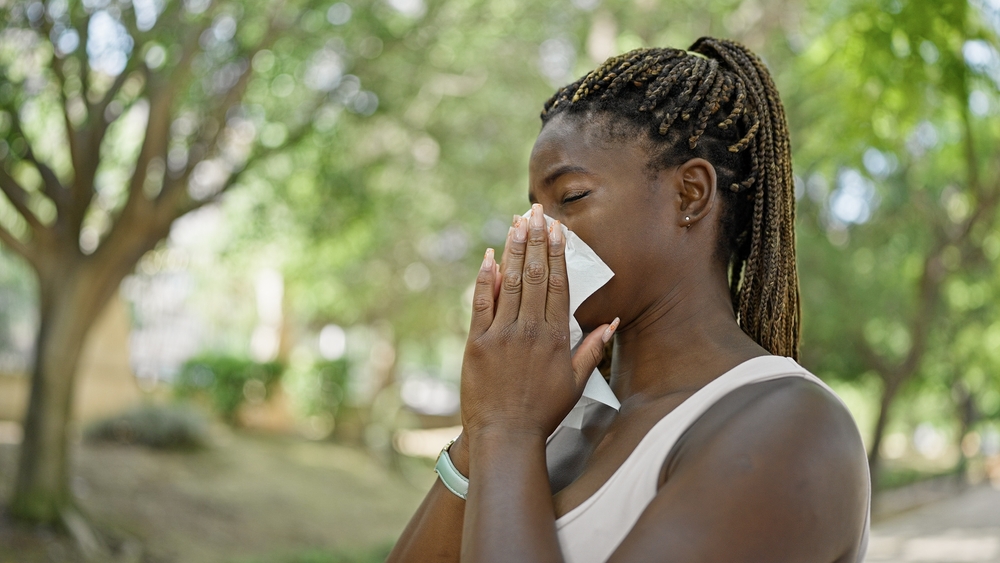
Do you have a much more difficult time when it’s really humid outside? The stickiness is bad enough, but it’s your sinuses that are the real issue. Sinus infections, medically known as sinusitis, can often be exacerbated by high humidity levels.
Symptoms of a sinus infection
Discomfort and an overall disruption of your day-to-day life frequently go hand-in-hand with sinus infections. When fluid containing viruses or bacteria builds up in the sinuses, a sinus infection is often the outcome.
Identifying the symptoms is critical for timely intervention:
- Headaches: Pressure headaches are a prevalent symptom, signaling sinus inflammation.
- Tooth Pain: Sinus pressure can expand to the teeth, creating discomfort and pain.
- Excessive Sinus Drainage: Constant sinus drainage is an indicator of infection.
- Persistent Nasal Congestion: Sinus infections frequently cause stubborn nasal congestion lasting for ten days or more.
- Fever: Sinus infections sometimes come with a consistent fever.
While not all symptoms will present at the same time, if you have any prolonged or severe cold-like symptoms, consult your primary care physician to assess the possibility of a sinus infection.
Can a sinus infection be caused by humidity?
While sinus infections can be the result of a range of causes, humidity plays a substantial role in exacerbating the condition. Despite initial skepticism, extreme humidity can indeed contribute to sinus infections due to its impact on respiratory defense mechanisms.
- Increased Vulnerability to Allergens: High humidity levels can result in prolonged exposure to allergens and irritants, exacerbating sinus inflammation and fluid buildup.
- Effects on Cilia Function: Cilia, tiny hairs in the nasal passages responsible for moving mucus and filtering pathogens, are impacted by humidity. In excessively humid conditions, cilia function decreases, compromising the body’s defense against infection.
What are optimal humidity levels?
It’s crucial to maintain an optimal humidity level. While the body’s defensive mucus and cilia require sufficient moisture to work effectively, overly high humidity levels can be detrimental.
You can determine humidity levels by keeping an eye on the dew point and if it goes into or above the 70s, it’s time to take some safeguards.
How to lower the risk of humidity-induced sinus infections
While complete elimination of humidity-induced sinus infections might be challenging, several preventive measures can minimize the risk:
- Utilizing Nasal Sprays: Healthy cilia function and a decreased risk of infection can be accomplished by the use of nasal sprays to maintain ideal moisture levels in the nasal passage.
- Avoiding Allergens and Irritants: When the weather is humid, steering clear of known allergens and irritants can reduce sinus inflammation. The risk of an infection can be reduced by avoiding things like going into the woods and avoiding places that are smokey.
When is it time to schedule an appointment?
Chronic or recurrent sinus infections, especially during humid periods, warrant consultation with an Ear, Nose, and Throat specialist. Depending on your sinus anatomy, you may be more vulnerable to a sinus infection if you have certain inherent medical conditions.
An Ear, Nose, and Throat specialist can offer personalized advice and suggest appropriate medications or interventions to promote sinus wellness.
Enjoy your summer free of sinus infections
Individuals who have hearing loss can still enjoy all of the outdoor opportunities that summer provides. By recognizing the impact of humidity on sinus health and employing preventive strategies, people can protect against infections and fully engage in summer activities.
For those concerned about sinus health, contact us to schedule an assessment today.